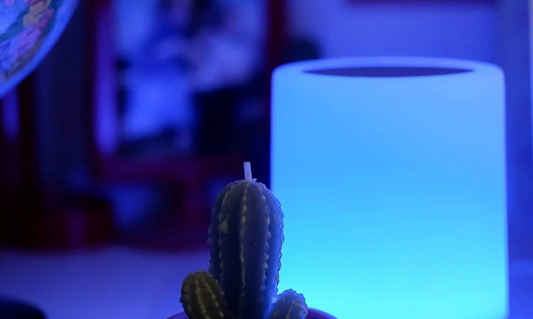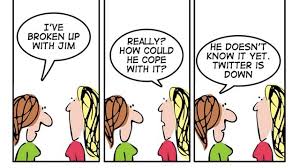
How to End a Toxic Friendship or an Unhealthy Relationship
Until they're the worst, friends are the best - and that's when things become complicated. If you're experiencing feelings of belittlement, rejection, discomfort, or pressure, you may be dealing with a toxic friendship.
Being in a toxic friendship can be exhausting, and it isn't easy to know how to cope. If you're determined to make it work, consult our guide on dealing with a toxic friendship for advice. If you've attempted, but your buddy is refusing to meet you halfway, it may be time to consider ending the friendship gently, even if it will be difficult.
Eliminating a friend from your life due to their wrongdoing is a difficult decision to make when you're feeling very emotional. Perhaps, once you've regained your composure, you'll be able to resolve matters with your friend; only you can decide whether you want to salvage the friendship. However, many people discover that with a bit of time and patience, friendships can become more resilient from navigating difficult times together.
However, if you've done everything in your power to resolve the issue but are still unable to see a way ahead, here are some options for ending a poisonous friendship or any type of unhealthy relationship.
1 - They should be faded out
The gentle fade is only effective if you and your friend are on the same page and are both willing to put in less effort into your friendship. It's a non-confrontational method that's typically very beneficial in many situations.
Here are some ideas to get you started:
Reduce the frequency with which you message or phone them. If you used to text three times a week, reduce your frequency to twice a week, then once a week, and so on.
Alternatively, if it's difficult because you're all in the same group, you may try keeping your catch-ups focused on group activities to keep your interactions less personal.
It is difficult to sever a friendship, no matter how you go about it. Keep in mind that a good fade-out is only possible if you and your partner are both pulling away. If the feeling isn't reciprocated, your friend can get the impression that you're ignoring or judging them. For example, if they inquire why you aren't spending time with them, this indicates that the fade-out is not reciprocal. If this is the case, or if you prefer to be up forward about ending the friendship, having a direct chat to clear the air may be the best option for you to pursue.
2 - Remove yourself from the situation
If your friend is physically or emotionally abusing you or making you feel bad about yourself, such as by calling you names to put you down, physically hurting you, threatening you, or exerting control over you, this is unacceptable. You are under no obligation to them, and you have the right to remove yourself from the situation at any time.
To put an end to the friendship, delete or block them from social media accounts or any other places where they might be able to communicate with you. If you go to the same school or university as them, see if you can avoid being in the same classes as each other.
But keep in mind that breaking up with a friend can have serious ramifications. The relationship between you and your friend could deteriorate, and you could lose some of your mutual friends as a result. Make your friends aware of the situation and ask them to be there for you as a source of support and encouragement. It's also important to let them know that you don't expect them to take sides in the debate.
Deciding to end a toxic friendship is something that you must do for your good. When you break away from a toxic friendship, you release yourself from a great deal of negativity and allow yourself to be yourself.
3 - Obtaining assistance
When a relationship comes to an end, we may require professional assistance to deal with the aftermath. If you believe your buddy needs to talk to someone or that they are a danger to themselves or others encourage them to get assistance.
To begin, you could speak with a counselor at your school or university. These counselors are usually available during school or university hours, and you can schedule a free consultation with them at any time. More information about who can assist you can be found in our obtaining assistance section.
>> Try a Pair of Friendship Lamps <<
- Friendship Lamps are connected to Wi-Fi in their respective locations and can 'talk' to each other.
- Tap one lamp and all the others in that virtual network will light up in the same color.
- It's an innovative but highly effective way to communicate your love across the miles.
>> Check Out Special Offers on Our Friendship Lamps <<
4 - Do it in person if possible.
If you're breaking up with a very close buddy, a text message or even an email will not suffice to express your feelings. They deserve some face time while you voice your frustrations because you have had many crucial experiences together. Furthermore ending things in person provides your friend the opportunity to express whatever is on their mind as well.
The old "fade-out" technique, may be sufficient when breaking up with someone you don't know well or haven't known for a lengthy period of time. As a result, refrain from returning phone calls and scheduling social activities and see if your significant other doesn't pick up on the message. Because you were never that close, there was no need for a confrontation.
5 - Choose the most appropriate time.
If you're intending to break up with your best friend over the phone, make sure you do so at the appropriate time, according to psychologist Irene Levine, Ph.D. in Best Friends Forever: Surviving a Breakup With Your Best Friend. To put it another way, try to avoid phoning when the person is at work, spending time with family, or in another public setting where he or she might not feel comfortable chatting about anything personal. And, no matter how you express your feelings, avoid initiating the break-up talk when the other person is emotionally vulnerable, such as immediately following the end of a romantic relationship.
6 - Choose the most appropriate place
Knowing where to have that hard conversation is almost as important as when you have it. Choose a place that you're both comfortable with but also affords you the privacy you need to have a conversation like this. Even if you do it over the phone, be aware of where your friend is at that time, and where you are as well. You don't want others to hear this conversation, so be cognizant of that fact for your friend, too. In most cases, choosing a neutral place where neither of you has any associated memories is a good idea. It helps make a clean break.
7 - Come prepared
There is a considerable probability that your friend will be taken entirely by surprise by your intention to put an end to things. You should be prepared to communicate the particular reasons why you are dissatisfied with them in that situation. Also, be prepared to discuss your expectations for the future of your friendship, including whether you want to completely cut off all communication or meet together less frequently.
8 - Provide an opportunity for them to cool off
To avoid an official breakup, you may inform your friend that you want to take a vacation from your relationship and reconsider it at a later time. The objective is that your friend will most likely begin establishing other friendships and will eventually lose interest in yours. In the event that your friend attempts to reestablish the friendship at a later point, you should be prepared with a plan of action.
9 - Demonstrate pity
A considerable likelihood exists that you are upset with your friend for how she behaved in the relationship. However, keep in mind that your friend is a normal person as well. People who are leaving a romantic partnership should consider how they would like to be treated if the situation were reversed — and the same rationale applies to people who are terminating a friendship. Don't let your frustration keep you from being kind and patient with others. Refrain from conveying your emotions through text or social media. Have a conversation with your friend in person or over the phone, and give him or her the opportunity to share their own thoughts on the matter.
10 - Make an effort to forgive
A Practical Guide to Recognizing and Dealing with an Unhealthy Friendship says that forgiving your buddy for some transgressions is beneficial to your mental well-being. It's unrealistic to expect you to ultimately forget what happened between you and your ex, but try to let go of some of your anger after the split and stop brooding over what went wrong. It is possible to know in your thoughts and your heart that you have moved on, even if you do not express your feelings to your friend in words like "I forgive you."
11 - Disruptive behaviors in a conversation
A frenemy's friendship is frequently fleeting and shallow. It is possible to get along with them, but they will cut you down often with subtle, passive-aggressive barbs that may even go missed at first. You should be aware that if a friend's statements appear puzzling and harsh, it is likely that they are not originating from a good place.
12 - Recognize the reality of the situation in the relationship
The first step in untangling oneself from a toxic person is to acknowledge the nature of the relationship. Even if you've decided to cut ties with a toxic friend, you may still hold onto some preconceived assumptions about your relationship. Be honest with yourself about the fact that the relationship is unhealthy and does not serve your best interests. Not only will this assist you in dumping a toxic friend, but it will also assist you in setting greater standards for yourself in the future.
You should consider what you receive out of the relationship if anything at all. Likely, you're no longer having fun with this person. They are most likely a financial drain on you. After spending time with them, you're undoubtedly feeling drained and worn out. Accept that you will not be able to change their minds. Toxic people can detect when someone is distancing themselves from them and will take steps to bring you back into their fold. Be aware that, no matter how much they promise it, a toxic person is unlikely to modify their behavior. You will avoid being dragged back into the relationship if you follow this advice.
Though having conflicting emotions is normal and to be anticipated, this does not imply that you should continue in an unhealthy friendship. For example, you may sincerely appreciate or adore your buddy, and your friend may possess some excellent characteristics; but, this does not rule out the possibility that the friendship will be poisonous. It is acceptable to be in love with a buddy while also wanting to move on.
13 - Create a script and put it through its paces
Breaking up with a buddy is difficult under any circumstance, but doing it with a toxic friend can be particularly difficult. Your companion may attempt to deflect responsibility or speak over you. The preparation and practice you put into creating a script can help you remain cool and on track when addressing a toxic individual.
First, jot down all of your thoughts on a piece of paper. Then go back and read what you've written. Gather your most significant thoughts and write a few succinct sentences stating why you're ending your relationship with that person.
Put your script through its paces a couple times. You can either rehearse in front of a mirror or simply say the words to yourself to get the hang of it. Try to have your words more or less memorized before addressing your friend so that you don't have to read from the script.
You can leave a toxic relationship in many different ways, and there is no one right method to do so unless you are concerned about your safety.
14 - Make it clear where your boundaries are
Make a decision about where you want to go next. Make a list of your personal boundaries ahead of time, and make sure to communicate these boundaries to your friend clearly and concisely. Make it explicit if you do not want them to contact you in the future, for instance. Never feel bad about setting boundaries for yourself. These are necessary for a healthy dynamic in a couple's relationship.
As clearly as you possibly can, define your boundaries. If you feel the need to set limits with others, then do so. As an example, you may not want to see this individual when you are attending a group function. Inform your friends and family.
15 - Putting a Stop to Contact
Inform the individual that you do not wish to see them again. Toxic individuals may find it difficult to comprehend your requirements in any given situation. Intoxicants are known to take advantage of vulnerable and trusting individuals, and they may attempt to re-engage with you following a breakup. Indicate clearly that you do not intend to see them in the future and that you will not be contacting them through this website.
It's fine to be a little direct in this situation. Again, avoid being aggressive, but maintain your composure. Say something along the lines of "I don't want to see you again, so please don't try to get in touch with me."
Toxic people may have difficulty letting go and may make repeated attempts to get you back into their fold. Ignore all texts, phone calls, and emails to make it known that you were serious about not wanting any further contact. You may want to block the person's phone number.
If you believe that material safety, bodily safety, or the safety of children may be at risk when you depart, you should consider getting outside assistance. Various domestic abuse hotlines can be contacted discreetly for assistance in devising a safe exit strategy from a toxic person's life. There are numerous domestic violence hotlines to choose from.
16 - Get rid of the person who is bothering you on social media
Once a person has been gone from your life, there is no reason to maintain your relationship with them on social media. This individual should be deleted, unfollowed, or de-friended on numerous social media platforms. Because you will not be receiving constant updates on this person's life, you will be able to better regulate your emotions as a result.
Not everyone chooses to keep their social media identities hidden. In the event that your friend does not protect their Facebook or Twitter page from the public, resist the temptation to check in on them after you have deleted their accounts. This is only likely to elicit unpleasant emotions, which will leave you feeling down in the dumps.
17 - Reward yourself for keeping your communication to a minimum
It might be difficult to let go of a connection, even if the relationship is awful. Additionally, a toxic buddy may have implanted incorrect beliefs in your mind, such as the impression that only they are capable of understanding you. You may have to invent an incentive for yourself. Give yourself modest rewards for keeping your conversation to a minimum.
Make a list of goals for yourself and give yourself rewards when you achieve them. As an example, if you ignore a person's texts for a week, you could reward yourself by purchasing a new wardrobe. For every month that you do not check their Twitter account, treat yourself to a lunch at a high-end restaurant.


















































